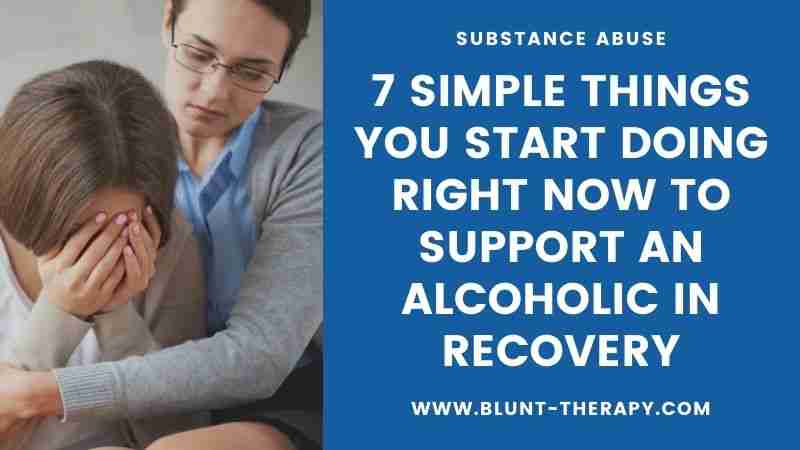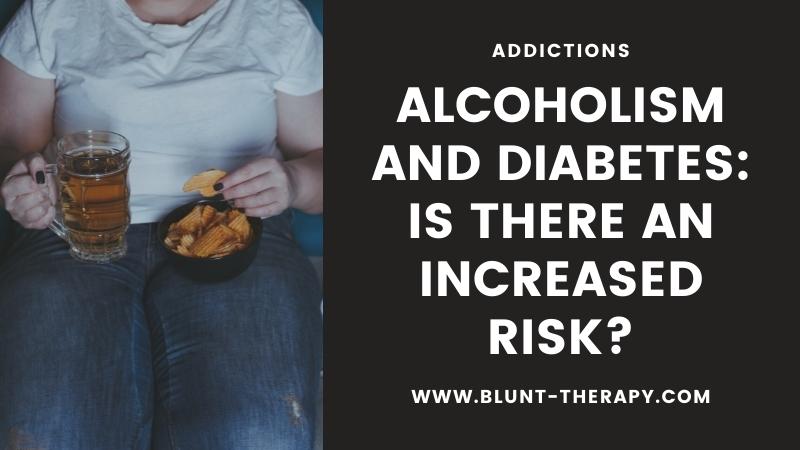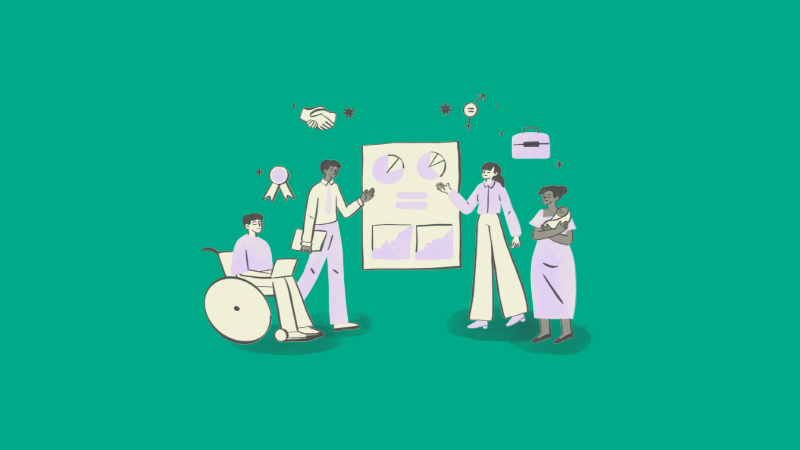Table of Contents
Affiliate link notice: As an affiliate of BetterHelp and other third-party vendors, We will receive compensation if you make a purchase using the links provided on this page. For more information, visit our disclosure page.
Last Updated on December 13, 2021 by Randy Withers, LCMHC
I’m not new to the world of addiction. Before moving to Zambia this year, I had worked with college students at a small university in the South. As any counselor at the university level could tell you, students frequently abuse a range of substances.
Thus, I considered myself well-versed in the treatment of drug addiction. So when I started volunteering with a substance abuse organization in Zambia, I wasn’t surprised to learn that many individuals in Zambia abused alcohol and other drugs.
But my actual experiences with drug and alcohol abuse in Zambia so far have shocked me.
The story below is one example of the burden of substance abuse in this country.

Personal Experience
In February, I found myself huddling under a tin shelter with my husband as the rain poured down.
We were the only white faces in sight and as such, we had everyone’s attention. We were in a small shopping area in a small town. There was a central pool table, some odd shops, and a mini-mart.
I had planned to stop in this small grouping of run-down shacks as a part of my weekly long run, as I had previously discovered that I could buy water at the mini-mart.
What I didn’t plan for was the timing of the rain. It was the rainy season, so it rained every day at this point….but I had mistimed it.
I did my best to sip my water and ignore the open-mouthed stares and the “Are you lost?” looks as I waited for the rain to pass so I could resume my run.
Out of the corner of my eye, I saw a man. He was wearing dirty, oversized clothes, and he had a haunted look in his eyes. At first, I thought he was hurt. He stumbled forward towards the central pool table, seemingly unaware of the downpour.
But as the rain cascaded down and blended with the dust, the ground became a light red sludge of slippery mud. He slipped and fell in front of everyone.
My husband started forward to help, but the shopkeeper held him back.
“He’s drunk,” the shopkeeper said in explanation.
The fallen man had righted himself by this point, but half of his jeans were covered in mud. He tried to get up once, fell a second time, and then finally managed to stand upright amid the mud and rain.
Other onlookers laughed as the man continued his forward progress, seemingly unperturbed by the fall.
I still sometimes process this event late at night. It wasn’t the first time that I saw someone publicly drunk in Zambia, but it haunts me.
I think about that man and if I could have helped him. I wonder if anyone is trying to help him. I think about how that could be me if the circumstances were different.
As the months passed, I learned more about drug and alcohol abuse in Zambia.

Overview of Drug and Alcohol Abuse in Zambia
Substance abuse, and specifically alcohol abuse, are growing problems in Zambia.
Zambian nationals confirm that social drinking is an enduring part of Zambian culture. Alcohol use is a part of many traditional celebrations and rituals. The consumption of home-brewed alcohol, in particular, is extremely popular.
While the exact prevalence rates are unknown, the World Health Organization estimated in 2016 that the drinking rate for males over 15 years old is 8.4% and for females is 1.4%.
This may not seem like a lot, but it is one of the highest drinking rates in sub-Saharan Africa. Further, in a low-income country, it is easier to see the devastating and well-spread reverberations of alcohol use on the individual, family, and community levels.
The consequences to family, personal health, and finances are far-reaching. For example, if a father spends the family money on alcohol, there is little left to buy food or pay school fees. Further complicating this issue is the relative unavailability of affordable mental health services for most Zambians.

Consequences of Alcohol Abuse in Zambia
Many studies reference the connection between alcohol abuse and social problems. In particular, alcohol abuse is connected to intimate partner violence, (1., 2., 3.).
One study (4) suggested that almost half of all married Zambian women experience intimate partner violence (IPV) at some point during their lives.
The negative effects of IPV on victims and their families are also well-documented. IPV is associated with a higher risk for sexually transmitted diseases, mental health issues, gynecological problems, and chronic pain, (5.)
It is also well-documented that alcohol abuse is tied to health problems including cancer, cirrhosis of the liver, and increased risk for the infection of HIV, (6.) The physical and mental toll of alcohol abuse in Zambia substantial.
Reasons for Drug and Alcohol Abuse in Zambia
So why is there so much alcohol abuse in Zambia? People use because they are hungry. People use because they can’t find work. People use because of untreated mental health issues. In many ways, it’s the same as the rest of the world, but also equally different.
Below are some of the lessons I learned about addiction from Zambia.
It’s Never About What it’s About
When I was training to be a counselor, one of my mentors coined the phrase, “It’s never about what it’s about.” She used this saying to caution us (young counselors) from jumping to conclusions about presenting problems (such as the reason a person says that they are coming to therapy.) Whatever someone thinks is their problem..may not actually be the true issue.
With addiction, there is frequently at least one deeper issue going on. As I referenced earlier, nobody uses for the substance itself. It’s never about the alcohol. It’s never about cocaine. It’s never about heroin. In Zambia, when I learned the enormity of the issues that people were experiencing, it wasn’t any mystery to me why people were using substances.
Addiction Perpetuates Poverty; Poverty Perpetuates Addiction
There is a complicated relationship between poverty and addiction. While it can’t be said that one causes the other directly, they are tied together in an inextricable way.
When people spend money on alcohol and other drugs, they have less money for basic needs. When people live in poverty, it makes the temptation to escape more tempting.. It’s easier to use than it is to confront complicated problems each day. When you are hungry, knowing that you can use and not think about hunger for a while is enticing.
The Stigma is Real
There is only one psychiatric facility in Zambia. Called Chainama Hospital, it’s on the edge of the capital city, Lusaka. If anyone spends any amount of time at Chainama, people will likely refer to them as “mad” or “crazy.”
There is a heavy level of stigma associated with getting treatment for mental health-related problems. Psychology is still in its infancy in Zambia. This means that getting help for addiction is notably difficult.
How You Can Help
The man referenced in the story earlier, the one stumbling around in the mud…he needs us. He needs compassionate individuals to empathize, encourage, and advocate.
This man is our brother, our cousin, our friend.
Everyone knows someone with an addiction issue. We owe it to them to become knowledgeable about the disease.
So what can you do?
1) Educate Yourself
Read accurate information about addiction. You can start by reading these articles on Blunt Therapy. They will point you to additional reputable books and websites about addiction.
7 Things You Need To Know If You Want To Help an Addict
7 Myths About Addiction You Need To Stop Believing
2) Get Help or Support Someone Else Who Needs Help
If you are struggling with addiction yourself or know someone who is struggling, get the help you need. There are a variety of in-person and online options available depending on your financial situation, location, etc.
For in-person therapy in the United States, a good place to start is by asking friends, family members, or your primary care physician for recommendations. Psychology Today and Therapy Den provide directories of therapists in your area.
For online counseling, we recommend Betterhelp, Talkspace, and Online Therapy.
3) Make a Donation of Money or Time
If you want to help fight drug and alcohol abuse in Zambia, consider making a donation towards addiction treatment. While there are many options out there, here are a few good ones:
To make a donation to a Zambia-specific organization, visit these sites:
References
- A Systematic Review of Risk Factors for Intimate Partner Violence
- (PDF) Ambivalent Sexism, Alcohol Use, and Intimate Partner Violence Perpetration
- Intimate partner violence and alcohol
- Reproductive health and domestic violence: Are the poorest women uniquely disadvantaged?
- Testing the effectiveness of a transdiagnostic treatment approach in reducing violence and alcohol abuse among families in Zambia: study protocol of the Violence and Alcohol Treatment (VATU) trial










Please add me to your weekly news letters how I can help someone.
Hi there. If you’d like to sign up for the newsletter, you can go here.
Interesting write up. Painful part remains that very few can access help.
What is shared in this article is real and painful,I for sure have witnessed someone close to me being inserted with a urinary catheter because of alcohol poisoning and intoxication such that he was almost gone (dead)..